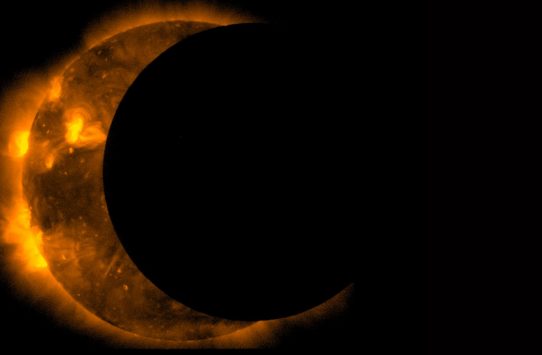Florida Tech Ready for Solar Eclipse
Safety Glasses Available Only at the Event
While Supplies Last
MELBOURNE, FLA. — Florida Institute of Technology will host a special event complete with telescopes for the Aug. 21 solar eclipse as part of a series of free public events the university is offering to mark this exciting celestial event.
From 1:30 to 4:30 p.m. on that Monday, Olin Physical Sciences Center on Florida Tech’s Melbourne campus will be open for viewing the eclipse, which in Florida will be a partial eclipse with the moon covering 84 percent of the sun.
While supplies last, the university will provide eclipse glasses to people on-site and offer the use of small telescopes fitted with solar filters. Serious eye damage could result from viewing the eclipse directly with the naked eye or through a telescope without a special filter. More eclipse safety information is available from the NASA website here.
The best time to see the eclipse will be between 2:30 and 3 p.m., when it will reach the closest to total coverage.
Florida Tech will also use classroom 405 in the Olin Physical Sciences building to offer a livestream of the eclipse from locations along the path of totality. Guests may also build their own pinhole “camera” that can be used to project the image of the sun for safe viewing of the eclipse.
The next total solar eclipse visible over the continental United States will be on April 8, 2024, with Florida again expected to witness a partial eclipse. The next total eclipse visible from Florida is in 2045.
Saida Caballero-Nieves, an assistant professor in Florida Tech’s Department of Physics and Space Sciences, director of the university’s Olin Observatory, and organizer of the eclipse events will be on hand to answer questions.
“This is one of the rare times you can witness an astronomical event without the aid of a telescope,” she said. “We hope to create a safe and educational experience for the community and we encourage people of all ages to join us and learn more about astronomy.”
Spectators everywhere may also serve a role as citizen scientists by contributing temperature and cloud observations during the eclipse to NASA’s app-based Global Learning and Observations to Benefit the Environment (GLOBE) program. Find links to download the app for Android and Apple here.
###





